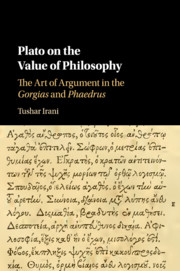Bibliography
Published online by Cambridge University Press: 27 April 2017
- Type
- Chapter
- Information
- Plato on the Value of PhilosophyThe Art of Argument in the <I>Gorgias</I> and <I>Phaedrus</I>, pp. 193 - 202Publisher: Cambridge University PressPrint publication year: 2017



